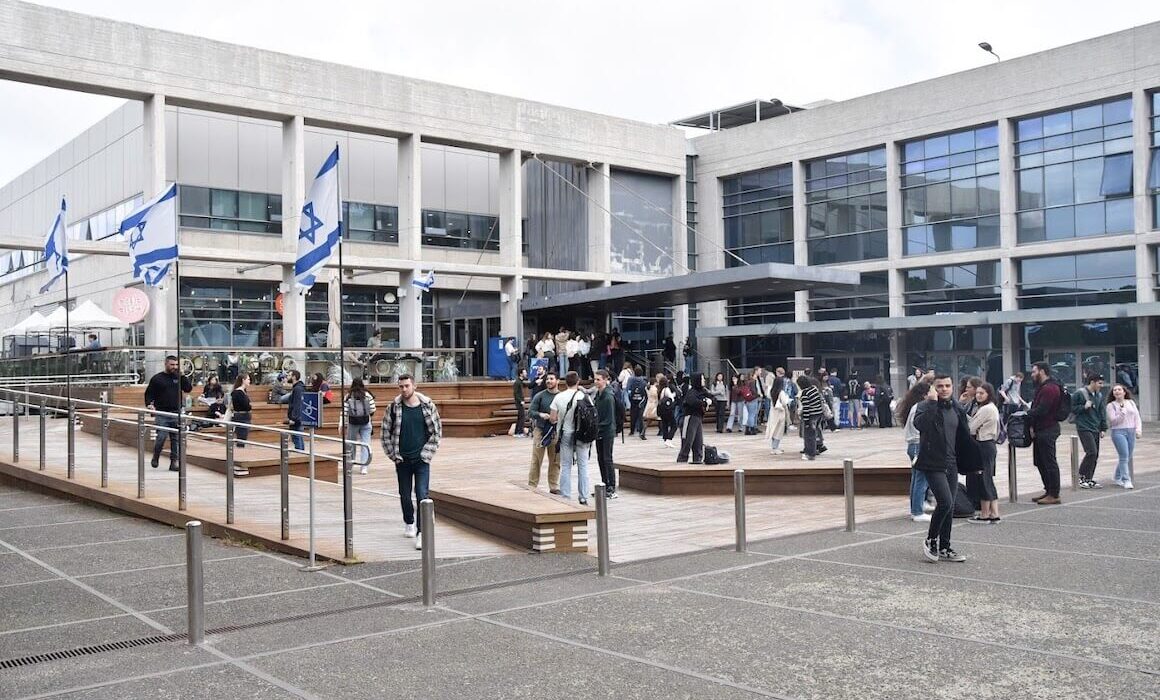School’s in session! After being postponed nearly three months due to the ongoing war with Hamas, the Technion academic year began on Sunday, January 14. The student body includes more than 15,000 students, with 10,745 undergraduates and approximately 3,000 graduate and 1,400 doctoral students.
As usual, the faculties with the largest numbers of new undergraduate students include the Andrew and Erna Viterbi Faculty of Electrical and Computer Engineering, the Henry and Marilyn Taub Faculty of Computer Science, and the Faculty of Data and Decision Sciences. The Faculty of Civil and Environmental Engineering is also in high demand.
There are more scholarships available for research students pursuing advanced degrees this school year. Despite concerns about the changing security situation in Israel, students from 11 different countries will begin their studies at the Technion this week. They hail from Argentina, Canada, China, England, Ethiopia, India, Mexico, the Philippines, Russia, Turkey, and the United States.
Additionally, 80 advanced-degree students will begin studying at the Joan and Irwin Jacobs Technion-Cornell Institute in New York City and 17 new students will join the student body at the Guangdong Technion – Israel Institute of Technology in China.
“Together with the entire country, the Technion suffered a terrible and painful blow,” said Technion President Uri Sivan. “Dozens of our community’s family members were murdered on October 7 and others were taken hostage. Many were wounded or killed in battle, and we are distraught and deeply pained.” The President explained that “we are opening the academic year because that has always been and remains our response to every attempt to disrupt our lives. We will continue to educate our students with the values that guided us during the last 100 turbulent years: tolerance, inclusion, and a commitment to truth and justice. We will continue to support the security and economy of the State of Israel, and no less importantly, we will continue to be committed to Israeli society out of a deep social responsibility towards all its citizens. The Technion has a long tradition of coexistence among all the communities on campus and we are determined to preserve this way of life. We are facing significant challenges but based on my familiarity with the strength and resilience of the Technion family, I have no doubt that we will successfully overcome these challenges.”
Technion Senior Executive Vice President Professor Oded Rabinovitch said, “We have been waiting a long time for students to return to the campus, and the opening of the new academic year is an opportunity for all of us to step up and do whatever we can to help the students adjust. This is a chance for us to pitch in to help those returning from the reserves, as well as those who will continue to serve during the semester and, indeed, all the Technion’s students. We foresee that there will be students who will continue to serve in the reserves after classes begin, and we will support them and make sure that they successfully complete their studies.”
The University aided students in their return to campus by offering the “Back on Track” program, which took place over the past two weeks under the leadership of the Dean of Students Office and the Technion Students Association. The program included stress-relieving, recreational workshops and activities prior to returning to the classroom. The unique initiative helped students – especially those who served in the reserves – return to their studies as smoothly as possible, take a break from the pressure, and catch up.
Dean of Students Professor Ayelet Fishman shared, “We are proud of our reservists, and this pride is expressed through an array of steps that we are taking on their behalf. Our students who serve in the reserves do not only deserve our appreciation; they also deserve extensive help upon returning to their studies. Therefore, we have announced a series of academic adjustments and accommodations designed to help them, as well as a significant NIS 6,000 grant to be applied towards payments connected to their studies. Like the rest of the country, the relationship between Jews and Arabs has been shaken by the war. As a result, we invested considerable resources to prepare for the students’ return to campus and the rehabilitation of our lives together. We have trained members of our faculty to teach mixed classes, and we have provided preparatory workshops for the dorm staff, as well as joint discussion groups and training for our student mentors – older students who serve as ‘big brothers and sisters’ to new students. We also established a Resilience Center and a telephone hotline to provide emotional and psychological help in Hebrew and Arabic. The entire student support and guidance team, which is part of the broad support network offered by the Office of the Dean of Students, received special training in preliminary therapeutic skills for helping trauma victims, and will operate according to the ‘trauma-aware campus’ model by adapting learning processes and helping ensure academic success.”
The Technion community is standing stronger together now more than ever, as evidenced by President Sivan’s parting words: “The opening of the year is our answer to every attempt to disrupt our lives.”
